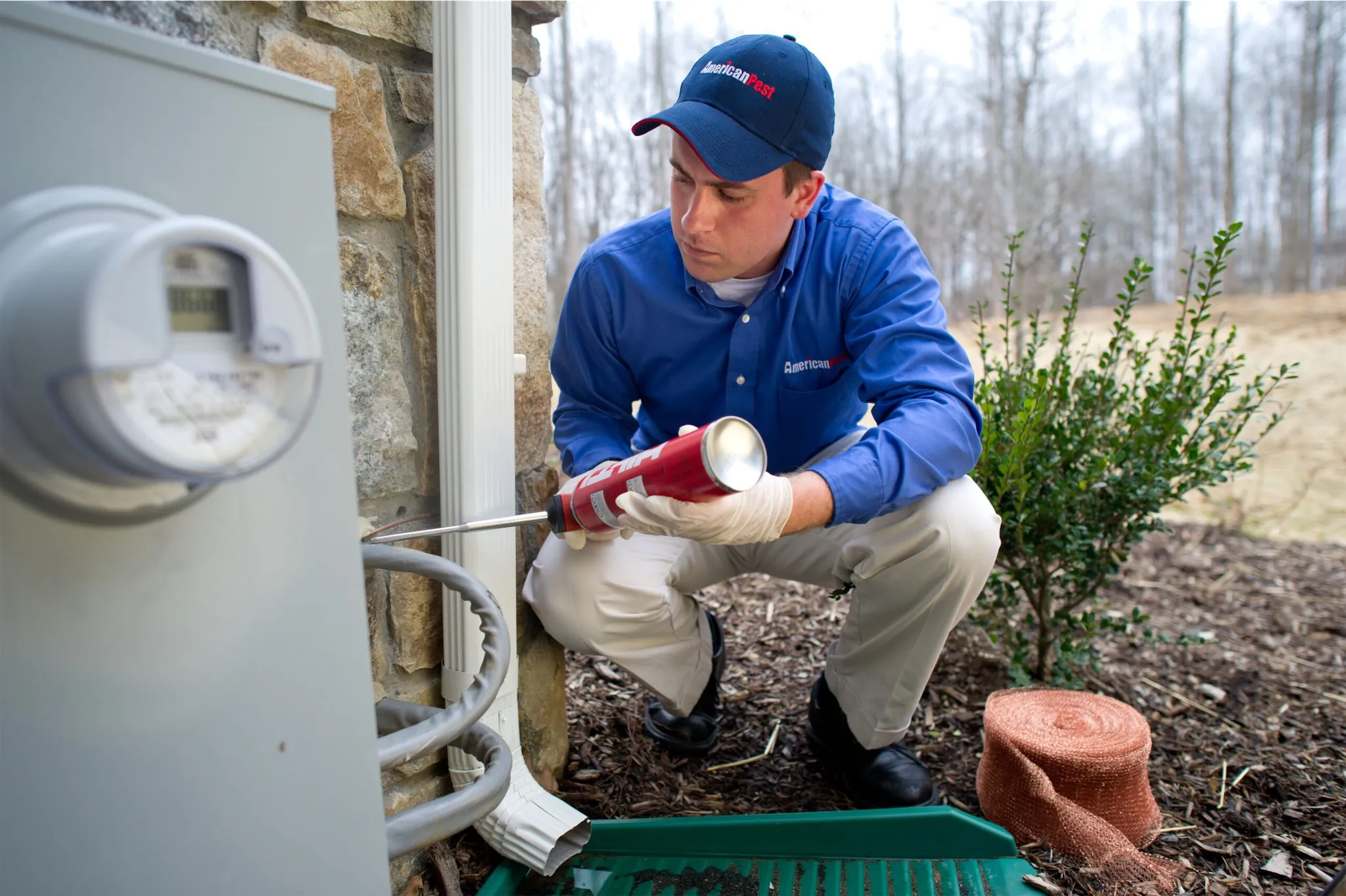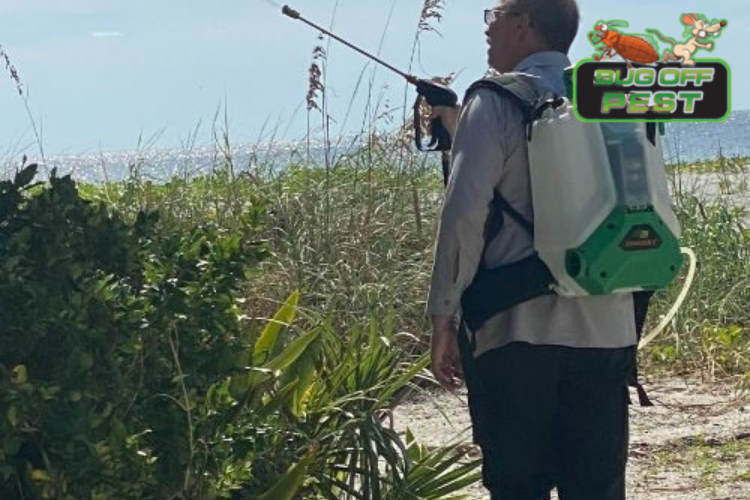Why Pest Control in Charlotte County Is Important for Your House’s Health
Why Pest Control in Charlotte County Is Important for Your House’s Health
Blog Article
Reveal the Significance of Pest Control in Maintaining a Healthy Atmosphere and Treatment Techniques

The Role of Bugs in Communities
Insects, commonly seen entirely as hassles, play a diverse duty in environments that is vital for preserving ecological equilibrium. They contribute considerably to numerous eco-friendly procedures, consisting of pollination, nutrient cycling, and insect control. Many insect species, such as and butterflies, are vital pollinators for a wide array of plants, which in turn supports biodiversity and food production.
Furthermore, insects act as prey for many killers, creating a vital link in food internet. This interdependence guarantees the survival of various varieties and helps regulate populations within ecosystems (Termite treatment Port Charlotte). Additionally, decomposer pests, such as specific beetles and fungis, contribute in damaging down raw material, therefore improving dirt and facilitating nutrition recycling.
Alternatively, while pests can be advantageous, their overpopulation or intrusion into non-native atmospheres may interrupt these eco-friendly features. This intricacy underscores the importance of recognizing bug characteristics, as effective insect monitoring strategies must think about both their eco-friendly roles and possible effects on human activities. Stabilizing pest visibility while lessening harm is crucial for maintaining the honesty of communities and guaranteeing agricultural productivity.
Wellness Dangers Connected With Pests
The existence of pests in different environments extends past their eco-friendly functions, as they also present significant health and wellness risks to humans and pets. Numerous bugs, including bugs, rats, and bloodsuckers, are providers of diseases that can have major health implications. Rats are understood to send hantavirus and leptospirosis, both of which can lead to extreme respiratory and renal problems, specifically.
Insects such as insects and ticks are infamous for spreading vector-borne diseases like jungle fever, dengue high temperature, and Lyme disease. These ailments can cause high morbidity and death prices, especially in prone populaces. Additionally, insects like vermins and roaches can worsen allergies and asthma, adding to breathing issues in individuals, specifically those with pre-existing problems.
Furthermore, the presence of bugs can bring about emotional stress and anxiety and discomfort, affecting total wellness. Contamination of food and surfaces by bug droppings and stays can result in foodborne illnesses, highlighting the value of maintaining sanitary problems. For that reason, comprehending the health risks connected with bugs is important in acknowledging the requirement of efficient parasite management approaches to guard human and animal wellness.
:max_bytes(150000):strip_icc()/GettyImages-1406458401-c326873c5dcf400dab30717b9b4e596a.jpg)
Advantages of Effective Insect Control
Effective bug control is vital for preserving a safe and healthy and balanced atmosphere, as it constantly alleviates the numerous threats associated with parasite invasions. One of the key advantages of efficient pest administration is the decrease of health and wellness dangers.
In addition, effective parasite control safeguards residential property and structures from damage. Many bugs, like termites and woodworker ants, can cause considerable architectural damages that may call for costly repairs. By proactively handling these house owners, companies and invasions can secure their financial investments.
An additional considerable advantage is the renovation of total lifestyle. A pest-free environment adds to mental well-being and decreases anxiety connected with invasions. Additionally, effective pest control fosters a safer setting for animals and kids, making sure that homes click site stay havens free from disease-causing organisms and damaging chemicals.
Common Parasite Control Techniques

In the realm of pest monitoring, different methods see this site are employed to fight invasions properly. These methods can be generally categorized right into three main strategies: social, mechanical, and chemical controls.
Social control involves customizing practices to decrease insect survival, recreation, and facility. This might include crop rotation, appropriate hygiene, and habitat adjustment, which collectively produce a setting much less for pest expansion.
Mechanical control utilizes physical techniques to get rid of pests (Termite treatment Port Charlotte). Methods such as vacuums, traps, and obstacles are commonly utilized to straight eliminate bugs from a location. This strategy is particularly reliable for managing rodents and pests without using damaging chemicals
Chemical control includes the application of chemicals to manage parasites. These substances can be categorized right into fungicides, herbicides, and insecticides, each targeting certain sorts of insects. It is crucial to make use of these chemicals judiciously, adhering to security standards and regulations to lessen possible harm to non-target species and the atmosphere.
Each bug control strategy has its benefits and constraints, and typically, an integrated approach incorporating several methods generates the very best cause keeping a pest-free setting.
Lasting Bug Administration Practices
Lasting insect management practices incorporate a variety of strategies made to reduce ecological impact while properly controlling insect populations. These practices focus on making use of eco pleasant methods over chemical pesticides, thereby reducing the risk of injury to non-target types, consisting of helpful bugs, wildlife, and humans.
Integrated Pest Administration (IPM) is a cornerstone of sustainable methods, integrating biological, social, mechanical, and chemical strategies to manage parasites. As an example, biological control entails introducing all-natural predators or bloodsuckers to reduce insect populations. Cultural practices, such as crop turning and polyculture, disrupt pest life cycles and boost ecological community durability.
Mechanical techniques, such as obstacles or traps, can successfully avoid parasite gain access to without chemical treatment. Additionally, preserving healthy and balanced environments with proper dirt management, plant wellness, and biodiversity can normally mitigate pest problems.
Education and learning and recognition are essential components, empowering people and communities to recognize bug hazards early and implement safety nets. Termite treatment Port Charlotte. By promoting a holistic technique that balances insect control with eco-friendly stability, sustainable pest administration methods not just secure crops and structures however also add to a healthier atmosphere for future generations
Conclusion

Comprehending the health and wellness threats connected with parasites is crucial in recognizing the necessity of reliable bug management approaches to guard human and animal health.
Reliable bug control is necessary for preserving a secure and healthy setting, as it consistently minimizes the many dangers associated with bug problems.Integrated Insect Monitoring (IPM) is a foundation of sustainable practices, integrating biological, cultural, mechanical, and chemical strategies to manage parasites. By understanding the function of pests, identifying connected wellness risks, and utilizing varied treatment methods, a sustainable technique to pest monitoring can be attained. Integrated Pest Administration (IPM) highlights an alternative method that minimizes injury to beneficial organisms while successfully regulating parasite populations.
Report this page